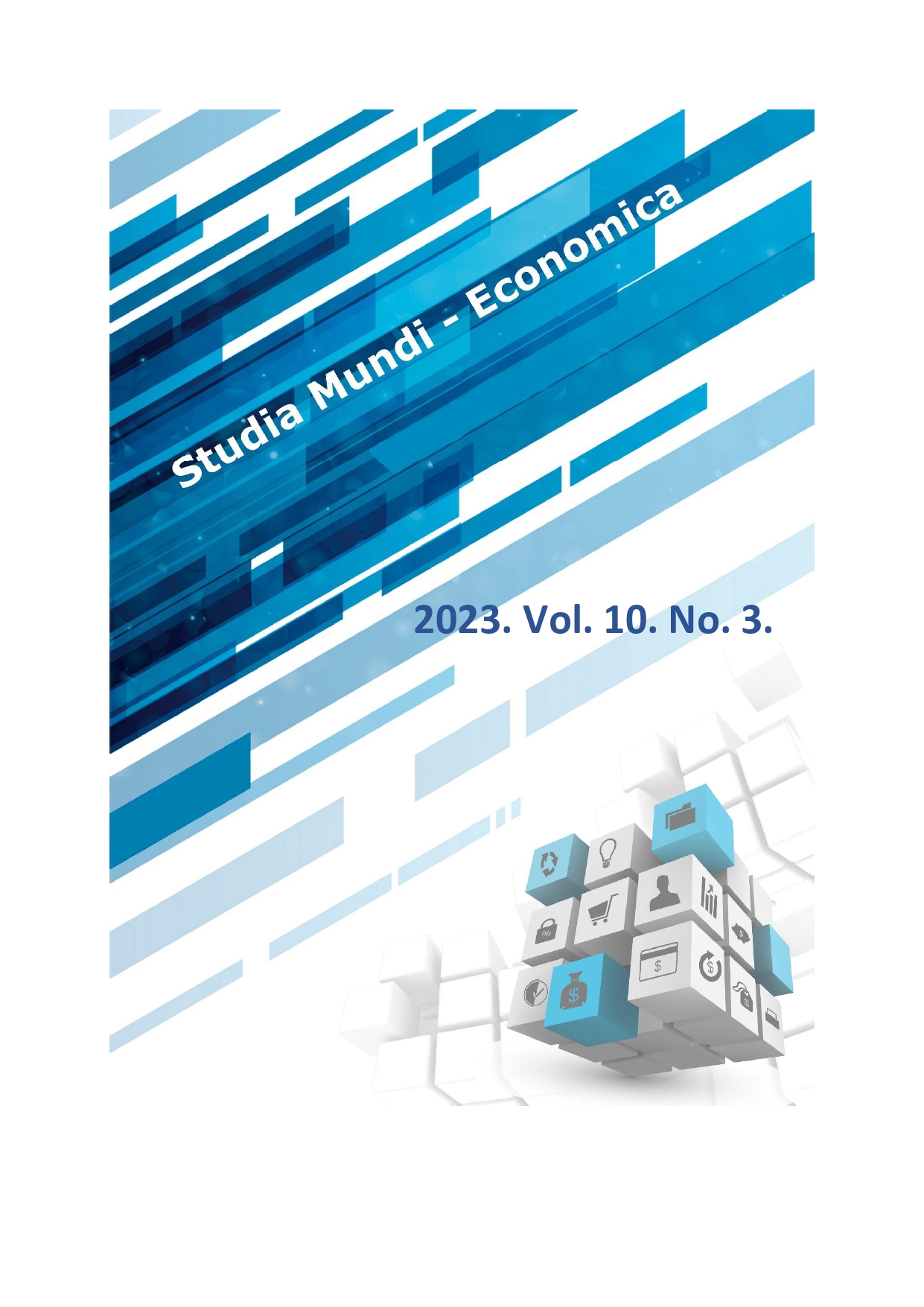Investigation of the resilience of Hungarian counties with regard to the coronavirus epidemic
DOI:
https://doi.org/10.18531/sme.vol.10.no.3.pp.46-57Keywords:
resilience, coronavirus, complex resilience indexAbstract
Epidemics have been a part of human life for centuries. The topicality of the manuscript is given by the fact that the coronavirus epidemic that broke out in 2019-2020 resulted in the emergence of a global crisis, and its negative effects can still be felt today. COVID has affected spatial structural factors and the everyday functioning of both urban and rural settlements, creating a shocking crisis situation, rewriting people's daily lives and the functioning of the economy. In our opinion, adaptivity and the ability to react to external influences are very important in the life of long-term sustainable settlements in the 21st century, which can be described by the concept of resilience (Pirisi 2019, Szalai - Fabula, 2022)The measures taken to tackle the epidemic resulted in social isolation and a deterioration in people's quality of life and economic situation. The aim of this study is to examine the resilience of the Hungarian counties in the light of the pandemic period.
References
Brown, A., Dayal, A., Rumbaitis Del Rio, C. (2012). From practice to theory: Emerging lessons from Asia for building urban climate change resilience. Environment and Urbanization, 24(2), 531–556. http://dx.doi.org/10.1177/0956247812456490
Eltarabily, S., Elgheznawy, D. (2020): Post-Pandemic Cities - The Impact of COVID-19 on Cities and Urban Design. Architecture Research 2020, 10(3): 75-84 DOI: https://doi.org/10.5923/j.arch.20201003.02
Greer, S.L., Jarman, H., Rozenblum, S., Wismar, M. (2020): Who’s in charge and why? Centralisation within and between governments, Eurohealth, 2. 99–103.
Hajdú, D. (2021): A koronavírus hatása a munkanélküliségre és az álláskeresőknek szóló képzésekre BorsodAbaúj-Zemplén megyében. Észak-magyarországi Stratégiai Füzetek, XVIII évf. 2021/1, DOI: https://doi.org/10.32976/stratfuz.2021.17
Holling, C. S. (1973): Resilience and stability of ecological systems, Annual Review of Ecology and Systematics, 1., 1–23.
Huszka, P., Huszka, P. B., Lőre, V. (2020): A koronavírus-járvány és felvásárlási láz néhány összefüggésének vizsgálata Győrben. Táplálkozásmarketing 7(1), pp. 89-101. DOI: https://doi.org/10.20494/TM/7/1/7
Martin, R., Sunley, P. (2015): On the notion of regional economic resilience: Conceptualisation and explanation. Journal of Economic Geography. Vol. 15. Issue 1. pp. 1–42. DOI: https://doi.org/10.1093/jeg/lbu015
Pirisi, G. (2019): A reziliencia lehetséges értelmezése a településföldrajzi kutatásokban. Tér és Társadalom, 2. 62–81.
Sebestyénné Szép, T., Szendi, D., Nagy, Z., Tóth, G. (2020): A gazdasági reziliencia és a városhálózaton belüli centralitás közötti összefüggések vizsgálata, Területi Statisztika, 2020. május 12., DOI: https://doi.org/10.15196/TS600303
Szalai, Á., Fabula, Sz. (2022): A COVID-19 világjárvány hatásai a városokra, különös tekintettel az okosvárosok előtt álló kihívásokra, city.hu, Várostudományi Szemle 2(1), 79–104.
Székely, I. (2015): Reziliencia: a rendszerelmélettől a társadalomtudományokig, Replika, 94., 7–23.
Szirmai, V. (2021): Nagyvárosok a COVID-19 vírusjárvány idején, Földrajzi Közlemények, 1. 1–16. DOI: https://doi.org/10.32643/fk.145.1.1
Tóth, T. – Káposzta, J. (2021): Succesful management of settlements to boost rural development. European Countryside, 13(4), 819–833. DOI: https://doi.org/10.2478/euco-2021-0044
Túróczi, I., Mester, É., Zéman, Z. (2020): Magyarország versus Covid–19: intézkedések, tapasztalatok, jövőkép, Polgári Szemle, 16. évf. 1–3. szám, 2020, 78–93., DOI: https://doi.org/10.24307/psz.2020.0706
Varga, J., Rusvai, M., Fodor, L. (2021): COVID-19, történet, előfordulás, oktan, járványtan, kórfejlődés, klinikai tünetek, kórjelzés, gyógyítás, megelőzés, védekezés, Semmelweis Egyetem, Népegészségtani Intézet, 2021. június 25., https://semmelweis.hu/medicinatortenet/2021/06/25/covid-19-tortenet-elofordulas-oktan-jarvanytan-korfejlodes-klinikai-tunetek-korjelzes-gyogyitas-megelozes-vedekezes/
UN Habitat (2022): https://data.unhabitat.org/pages/city-prosperity-index
World Bank (2016): Investing in urban resilience. Protecting and promoting development in a changing World http://documents.worldbank.org/curated/en/739421477305141142/pdf/ 109431-WP-P158937-PUBLIC-ABSTRACT-SENT INVESTING-IN-URBAN RESILIENCEProtectingandPromotingDevelopmentinaChangingWorld .pdf Letöltve: 2022.02.17.
Downloads
Published
Issue
Section
License
Copyright (c) 2023 Greutter-Gregus Éva, Koncz Gábor, Némediné Kollár Kitti

This work is licensed under a Creative Commons Attribution-NonCommercial-NoDerivatives 4.0 International License.
A folyóirat Open Access (Gold). Cikkeire a Creative Commons 4.0 standard licenc alábbi típusa vonatkozik: CC-BY-NC-ND-4.0. Ennek értelmében a mű szabadon másolható, terjeszthető, bemutatható és előadható, azonban nem használható fel kereskedelmi célokra (NC), továbbá nem módosítható és nem készíthető belőle átdolgozás, származékos mű (ND). A licenc alapján a szerző vagy a jogosult által meghatározott módon fel kell tüntetni a szerző nevét és a szerzői mű címét (BY).






